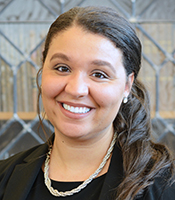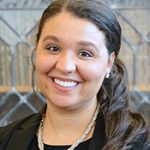
Assistant Professor at The Ohio State Moritz College of Law; William H. Hastie Fellow at the University of Wisconsin Law School (2016-2018)
I tell anyone who will listen that accepting the Hastie Fellowship at Wisconsin Law School was the best professional decision I ever made. Without a doubt, I was a stronger candidate on the teaching market because of it. But I’m also genuinely convinced that I’m a better teacher, scholar, and colleague today because of what I learned as a Fellow.
Being from a family of educators, a teaching career had always been in the back of my mind. But I knew nothing about what the path to law professor entailed, much less how to get on it. Although I enjoyed law school as a student, I was keenly aware that my professors didn’t look like me, talk like me, or attend the same schools I had. My fellowship, though, made everything about a career teaching law (and the people on it) less foreign. As a fellow, I had time to build a scholarly network, absorb academic norms and vocabulary, and study the ins and outs of the hiring process. I also experimented with writing styles, interacted with faculty as colleagues for the first time, and observed different teaching methods—all while developing my own. I still rely on this network and these lessons now.
As a fellow first, I had years to lay this groundwork before taking on full-time faculty responsibilities. Put simply: my fellowship afforded me the time and space to make a few mistakes while transitioning from practice into academia, but none of these mistakes will show up later in my tenure file.
Law fellowships free up the time to produce legal scholarship, and, when structured properly, they also provide the resources, connections, and opportunities to produce good legal scholarship. Although there is plenty of solitary reading and writing involved, good legal scholarship rarely happens entirely in a vacuum. Likewise, during my fellowship, my work improved tremendously by presenting at academic conferences, participating in workshops, and incorporating the feedback I received at these events. While opportunities for feedback are not exclusively open to fellows, they are obviously more available to you when you’re already plugged into a law school community and producing scholarship fulltime.
Besides witnessing my own scholarship improve, being a part of a law school community months before I went on the teaching market had other significantadvantages. For one, I was able to establish relationships with colleagues at Wisconsin—several of whom went on to be enthusiastic recommenders for me on the market. Being integrated into a law school community during these critical months also allowed me to observe and participate in other scholars’ collaborative processes. Observing other scholars made me a better presenter and defender of my own projects and triggered new ideas and unexpected moments of clarity for me. But most importantly, seeing accomplished scholars share imperfect drafts or half-baked ideas early in the writing process dispelled the myth I had internalized as a law student about professors being somehow different than I was. Indeed, as I began seeing them as more relatable, more human, and far more like me than I had once thought, I simultaneously became more comfortable with the idea that I too was a legal scholar and could be a competitive candidate on the market.
Going the fellowship route by no means ensures a coveted spot on a law school’s faculty. Likewise, I don’t know of any former fellows who didn’t take significant pay cuts or relocate for their positions. But I also don’t know of any who regret pursuing them either. Because my time as a fellow prepared me so well for what was ahead, I only needed to go on the teaching market and attend the Faculty Recruitment Conference once. I did 29 screening interviews at the fall 2017 conference that led to 10 callbacks. These led to three offers by January 2018, when I happily, gratefully, and without hesitation accepted an offer at Ohio State. This entire interview and hiring process took place in about two months and frankly, I simply couldn’t have kept that schedule had I still been practicing fulltime rather than at the tail end of a fellowship. The process also wouldn’t have been nearly as tolerable had I not already met many of the interviewers, hiring committee members, and other candidates throughout my time as a fellow.
I would encourage anyone who enjoys writing and being in the classroom to consider a career in legal academia. Particularly persons of color and those belonging to underrepresented communities—we need more of you and being a law professor is an incredible job. But no one just falls into it anymore, and doing a fellowship exposes you to informal networks, mentoring and information that will improve your chances of landing a job. And not just any job—but a meaningful one where you’re paid to think, write, and teach law for a living!
Although every program is different, I’m more than happy to discuss my individual experience further with anyone considering a law fellowship. Please feel free to reach out to me directly.
